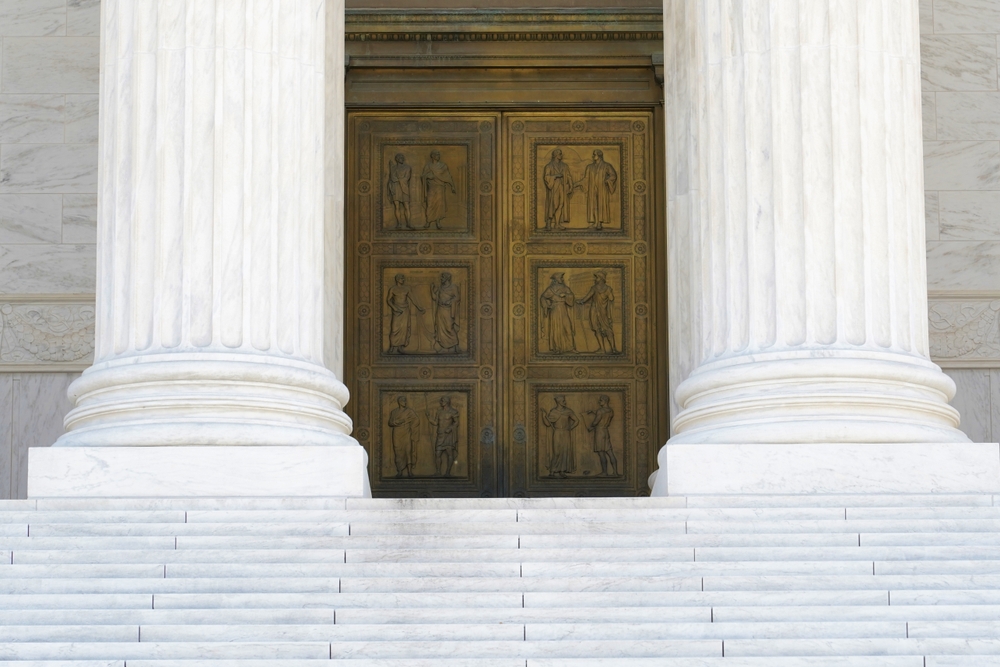
SALT Spoils Federalism
Increasing the SALT deduction undermines federalism by shielding high-tax states from the consequences of spendthrift policies.
During the recent budget reconciliation process, the U.S. House of Representatives Ways & Means Committee produced “The One Big Beautiful Bill,” a sweeping tax proposal. As the name suggests, the bill covers many topics, from making the Tax Cuts and Jobs Act permanent to increasing the standard deduction and expanding the Child Tax Credit.
Among the changes in the bill is the highly contested increase in the State and Local Tax (SALT) Deduction cap, which would allow tax filers to increase the amount of money they deduct for state and local taxes. An increase in this deduction would enable high-tax states to expand their budgets irresponsibly, as taxpayers could deduct more of what they pay locally when filing federally.
Increasing the SALT deduction, however, disproportionately favors high-tax states (such as California, New York, and Illinois) at the expense of low-tax states. This would undermine federalism by shielding these high-tax states from the consequences of spendthrift policies. If state and local governments are to be accountable to the people, the SALT deduction should be strictly capped or eliminated altogether.
How SALT Works
The State and Local Tax (SALT) deduction is an itemized deduction that a filer includes on their federal income tax return. It allows them to subtract up to $10,000 of “property taxes plus state income or sales taxes, but not both,” from their taxable income.
Before the passage of the Tax Cuts and Jobs Act (TCJA) in 2017, there was no cap on the value of the SALT deduction. According to the Tax Foundation, “before the TCJA, 91 percent of the benefit of the SALT deduction was claimed by those with income above $100,000 and concentrated in six states: California, New York, New Jersey, Illinois, Texas, and Pennsylvania.” Overall, the deduction allowed high-income taxpayers in these states to receive a discount on their federal income taxes.
This deduction also comes at a cost to federal taxpayers. The Joint Committee on Taxation recently reported that if the SALT $10,000 deduction cap were to expire, “federal revenue losses attributable to SALT will increase from $23 billion in FY2025 to $197 billion in FY2027.” While the government taking in less money might generally be welcomed, an uncapped SALT deduction would shift the tax burden to filers in low-tax states.
Despite SALT benefiting only a small group of Americans, removing this deduction has proven politically difficult. The legislative process runs on compromise, so members must “logroll.” For instance, a member of Congress from a low-tax state might agree to increase the SALT deduction in exchange for the inclusion of their desired policies in the “One Big Beautiful Bill” (like expanding the 529 education savings accounts).
Additionally, the logic of collective action explains why such a narrow deduction persists. The roughly 9 percent of all tax returns in 2022 form a small, motivated, and relatively homogenous group with a strong interest in preserving and expanding SALT. Their shared goals make organizing easier and reduce the risk of free riding, whereas the broader population of taxpayers have more diffuse and less coordinated interests. Elected officials will cater to these smaller groups’ demands, hoping that doing so will aid their reelection.
Both logrolling and the logic of collective action help explain why a narrow benefit, such as the SALT deduction, can survive repeated reform efforts. These dynamics are especially prevalent when attempting to pass legislation that covers a broad range of areas, such as “The One Big Beautiful Bill,” last year’s Bipartisan Tax Bill, or the numerous “Omnibus Bills” passed in previous years to narrowly avoid government shutdowns.
Cartel Federalism: SALT, High Taxes, and Transfers
While the SALT debates focus on Congress, state policymakers are equally responsible. Washington can influence the states through a deadly combination of the SALT deduction and federal transfers.
Policy analyst David Ditch comments, “[The SALT deduction] reduces the political cost [of increasing taxes], making state and local officials more comfortable with tax-and-spend budgeting.”
Federal transfers to state governments exacerbate this issue. The average state government has over one-third of its expenditures covered by federal transfers, with 56 percent of transfers explicitly earmarked for Medicaid. Medicaid is jointly funded, with the federal government paying $1.33 for every dollar the state spends on low-income enrollees and $9 for every dollar the state spends on Medicaid expansion enrollees.
This arrangement enables state governments to boost Medicaid spending to maximize federal matching dollars. Matthew Dickerson notes that this dynamic allows state governments to offload financial responsibility onto taxpayers in other states.
This deadly combination encourages what Michael Greve calls “Cartel Federalism,” where states “collude and induce the federal government to suppress competition on important margins and, ideally, all of them.” This combination increases federal influence over state policy by tying funding to specific terms and conditions, reducing incentives for innovation and forcing conformity.
Restore Federalism by Closing the Honesty Gap
Despite the growth of cartel federalism, some competition among states endures. Americans continue to vote with their feet, leaving high-tax, interventionist states such as California, Illinois, and New York.
The SALT deduction, however, still blunts the consequences of fiscal mismanagement. State policymakers in high-tax states blame the SALT cap for driving out residents when the real cause is their own policy choices.
For example, California is projecting a $12 billion shortfall. In Illinois, 33 counties voted to secede from the state and join neighboring Indiana, “citing lower taxes, fewer regulations, and strong economic growth.” New York state recently passed the largest budget in state history, with billions dedicated to bloated Medicaid spending.
Maintaining the current SALT cap (or better yet, eliminating the SALT deduction) will force policymakers in these and other high-tax states to admit that their actions are the cause of the high cost of living, not the lack of an uncapped SALT deduction. Without SALT, policymakers in high tax states will be forced to explain how they’re spending taxpayer dollars and why their actions are causing residents to flee the state.
This is a first step toward restoring competitive federalism, with genuine taxpayer accountability and a revitalized balance between Washington and the states.
Thomas Savidge is a Research Fellow at the American Institute for Economic Research. Follow on Twitter/X: @thomas_savidge.
Constitutionalism

Amicus Brief: Hon. William P. Barr and Hon. Michael B. Mukasey in Support of Petitioners
Former AGs Barr and Mukasey Cite Civitas in a SCOTUS Brief

Rational Judicial Review: Constitutions as Power-sharing Agreements, Secession, and the Problem of Dred Scott
Judicial review and originalism serve as valuable commitment mechanisms to enforce future compliance with a political bargain.

Supreme Court showdown exposes shaky case against birthright citizenship
Supreme Court will hear challenges to Trump's order ending birthright citizenship, testing the 14th Amendment's guarantee for babies born in America.

Slavery and the Republic
As America begins to celebrate its semiquincentennial, much ink has been spilled questioning whether that event is worth commemorating at all. Joseph Ellis’s The Great Contradiction could not be timelier.

Two Hails For The Chief’s NDA
Instead of trying to futilely plug the dam to stop leaks, the Court should release a safety valve.


.avif)










.avif)



